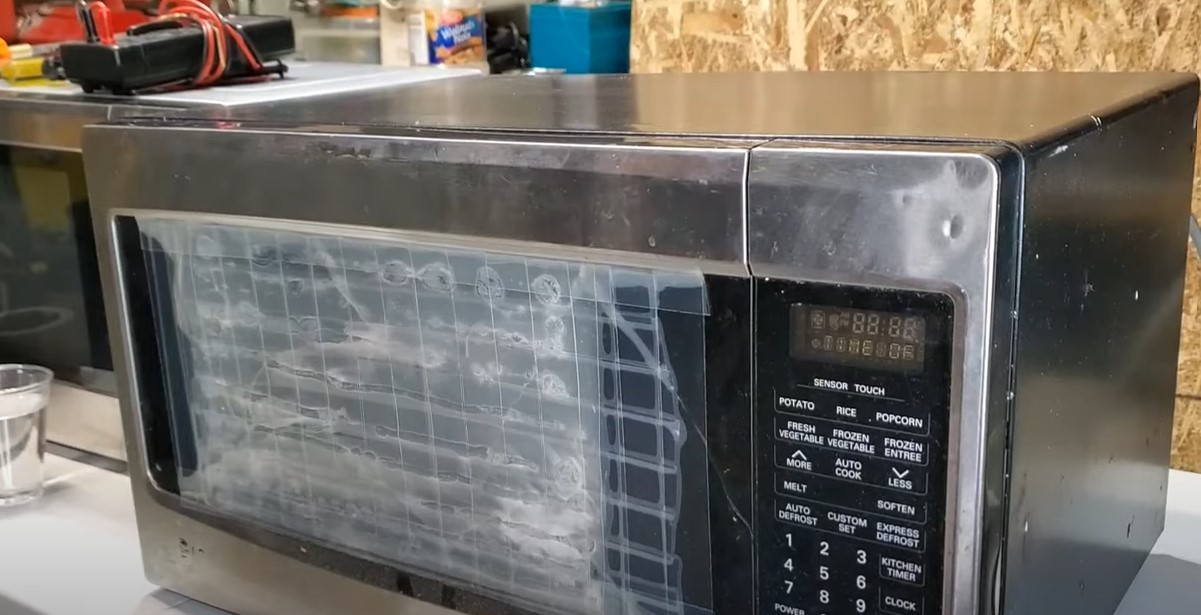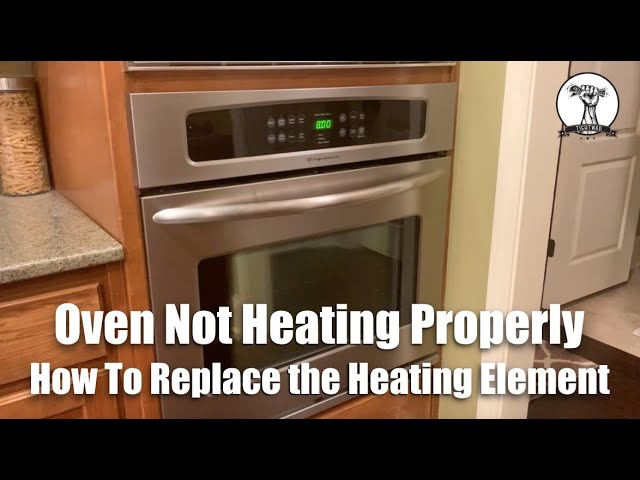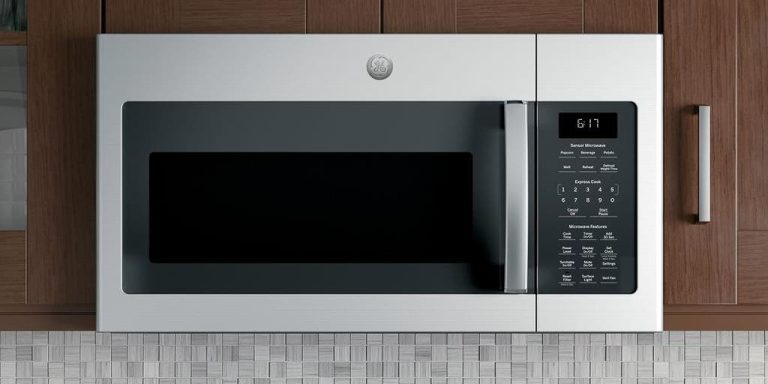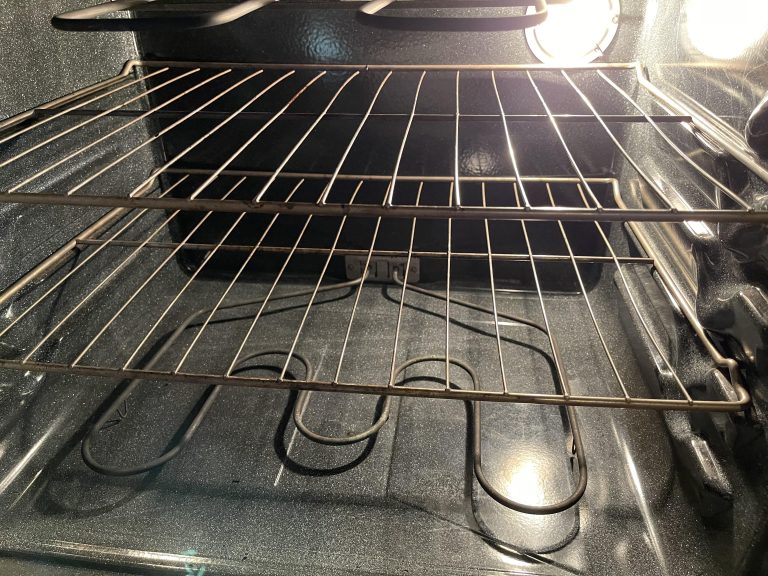Why is My Electric GE Oven Not Heating Up? Solutions Inside
Why is my electric GE oven not heating up? A GE electric oven may not heat due to a faulty bake element, blown thermal fuse, malfunctioning temperature sensor, or defective control board. Tripped circuit breakers or loose wiring can also cause the issue. Inspect components and connections; replace or repair faulty parts to restore heating.
You’re left with uncooked food and dinner plans in disarray. It’s frustrating, right? Understanding why your oven isn’t heating up is crucial, not only to restore your cooking routine but also to avoid unexpected repair costs. This article will delve into the most common reasons your electric GE oven might be leaving you out in the cold.
From simple fixes you can handle yourself to situations where a professional is needed, you’ll find all the insights to get your oven back to its sizzling best. Stay with us, and let’s tackle this kitchen dilemma together.

Credit: www.youtube.com
Why Is My Electric GE Oven Not Heating Up?
Common Causes
Experiencing issues with your electric GE oven can be frustrating. Understanding the common causes behind the heating problem can help you troubleshoot effectively. Let’s explore some typical reasons your oven might not heat up.
1. Faulty Heating Element
The heating element is crucial for generating heat in your oven. If it’s damaged or broken, the oven won’t heat. Check for visible signs of damage. A replacement might be necessary.
2. Malfunctioning Thermostat
The thermostat regulates oven temperature. If it fails, the oven can’t maintain heat. Test the thermostat with a multimeter. Replace it if needed.
3. Defective Oven Igniter
The igniter lights the gas burners. If it’s weak or faulty, the oven won’t heat. Observe the igniter’s glow. A dim glow indicates a replacement is needed.
4. Problematic Control Board
The control board manages oven functions. If it’s defective, heating issues arise. Inspect for burnt spots or signs of damage. Consult a professional for repair.
5. Broken Temperature Sensor
The temperature sensor monitors oven heat levels. If it’s broken, the oven can’t heat properly. Test the sensor’s continuity. Replace it if readings are off.
6. Power Supply Issues
Check the oven’s power supply. A tripped circuit breaker can cause heating failure. Ensure the oven is plugged in and the circuit is active.

Credit: atechappliance.com
Troubleshooting Steps
Experiencing issues with your GE electric oven not heating up? Start by checking the power connection and ensuring the oven is plugged in correctly. Inspect the heating element for any visible damage and test the thermostat for proper functionality.
When your Electric GE oven suddenly stops heating up, it can throw a wrench in your dinner plans. But don’t worry! Sometimes, the solution is simpler than you think. By following a few troubleshooting steps, you might just save yourself a trip to the repair shop and get back to cooking delicious meals. Let’s dive into some practical ways to identify what’s going on with your oven.
Check The Power Supply
First things first, ensure your oven is properly plugged in and receiving power. You’d be surprised how often a loose plug or tripped circuit breaker is the culprit. Check your outlet with another appliance to confirm it’s working. If your circuit breaker has tripped, resetting it might be all you need to do.
Inspect The Heating Element
The heating element is crucial for your oven’s functionality. If it’s damaged or burnt out, your oven won’t heat. Open the oven and visually inspect the element for any visible damage like cracks or burns. If you see damage, it’s time to replace the heating element. This can often be done with a simple DIY repair kit.
Test The Oven Temperature Sensor
The oven temperature sensor might be off balance. This sensor tells your oven when to heat up and when to cool down. If it’s malfunctioning, your oven might not heat properly. Check if the sensor is touching the oven wall, which can cause inaccurate readings. Adjust its position or consider replacing it if it’s faulty.
Examine The Control Board
Your oven’s control board is its brain. If it’s not functioning properly, the oven might not heat. Look for error codes displayed on your oven’s digital screen. These codes can guide you to specific issues. In some cases, you might need a technician to repair or replace the control board.
Consider The Igniter
If you have a gas oven, the igniter is essential for heating. An igniter that’s weak or faulty won’t light the gas flame, thus no heat. Observe whether the igniter glows when you turn the oven on. If it doesn’t, or if it takes a long time to ignite, replacing the igniter might resolve your problem. Remember, understanding your oven’s issue is like solving a mystery. Each step you take might reveal a clue to the bigger picture. Have you ever faced an appliance problem that seemed daunting, but was solved with a simple fix?
Thermostat Issues
Is your electric GE oven leaving you high and dry when it comes to meal preparation? The culprit might be a faulty thermostat. This seemingly small component plays a critical role in ensuring your oven reaches and maintains the right temperature. Without it, your oven might struggle to heat up, leading to undercooked meals. Let’s dive into how thermostat issues might be affecting your oven’s performance and what you can do about it.
Thermostat Calibration Problems
Have you noticed your oven taking longer to cook food than usual? A miscalibrated thermostat might be to blame. Calibration issues can cause temperature discrepancies, making your oven hotter or cooler than the set temperature.
To test this, you can use an oven thermometer. Place it inside and set your oven to a known temperature. If the thermometer shows a different reading, your thermostat may need recalibrating.
Consider seeking professional help to ensure accurate calibration. This ensures your recipes turn out perfectly every time without guesswork.
Thermostat Malfunction
A malfunctioning thermostat can be frustrating. If your oven doesn’t heat up at all, this might be the issue. You might hear clicking sounds or notice erratic temperature changes.
Disconnect power and inspect the thermostat for visible damage. Cracks or burnt spots are clear signs it might need replacing.
Replacing a thermostat isn’t overly complex, but if you’re unsure, calling a technician can save time and prevent further damage.
Signs Of Wear And Tear
Over time, thermostats can wear out. Have you used your oven for many years? It might be time for a replacement. Constant heating cycles can degrade components.
Look for signs like inconsistent temperatures or frequent repairs. These are telltale signs of wear and tear.
Consider investing in a new thermostat to restore your oven’s efficiency. You might be surprised at the improvement in cooking performance.
Diy Troubleshooting Tips
Before calling a technician, there are a few things you can try. Check the thermostat connections. Loose wires can disrupt its function.
Ensure your oven is level. A tilted oven can affect heating and cause temperature inconsistencies. Use a spirit level to check this.
If you’re comfortable, use a multimeter to test the thermostat’s continuity. No reading? You might need a replacement.
Are you ready to tackle these thermostat issues head-on? Imagine the joy of having an oven that heats perfectly every time. Addressing these problems not only saves time but also enhances your cooking experience. Share your thoughts and let us know how your troubleshooting journey goes!
Heating Element Problems
Experiencing issues with your electric GE oven? A faulty heating element might be the cause. Check for visible damage or uneven heating.
When your electric GE oven refuses to heat up, it can throw a wrench into your meal prep plans. One common culprit behind this issue is the heating element. Understanding how your oven’s heating elements function is crucial in diagnosing the problem. These components are responsible for generating the heat necessary to cook your food evenly and efficiently. If they’re not working properly, your oven’s performance will suffer, leaving you with cold, uncooked meals.
What Is A Heating Element?
Think of the heating element as the heart of your oven. It’s the part that gets hot and makes cooking possible. In electric GE ovens, you’ll typically find two types: the bake element at the bottom and the broil element at the top. If one or both are malfunctioning, your oven won’t heat properly.
Signs Of A Faulty Heating Element
How do you know if the heating element is the issue? One clear sign is if your oven heats unevenly or not at all. Another clue is visible damage, such as burns or breaks in the element. If you notice sparks or your oven trips the circuit breaker, it’s time to investigate the heating elements.
Testing The Heating Element
Testing the heating element is straightforward. You can start by visually inspecting it for any obvious damage. If nothing seems out of place, consider using a multimeter to check for electrical continuity. A break in the circuit indicates the element is faulty and needs replacement.
Replacing The Heating Element
If testing confirms the element is defective, replacing it is a practical step. You don’t need to be a tech expert to tackle this task. Simply purchase a compatible replacement, unscrew the old element, disconnect it, and attach the new one. Always remember to turn off the power first to ensure safety.
Preventive Measures
Regular maintenance can help prevent heating element problems. Cleaning your oven periodically ensures no food or debris is left to damage the element. Also, avoid using harsh chemicals that might corrode it. A little care goes a long way in keeping your oven functional. Reflect on your last cooking mishap—could a faulty heating element have been the cause? The next time your oven fails to heat, you’ll know where to start. By understanding and addressing heating element problems, you can reclaim your culinary confidence.
When To Call A Professional
Experiencing issues with your electric GE oven not heating up? A professional is needed if simple troubleshooting fails. Attempting complex repairs without expertise can cause further damage. An expert ensures a safe and accurate diagnosis, helping restore your oven’s functionality efficiently.
When your electric GE oven refuses to heat, it can be frustrating, especially when you’re in the middle of preparing a meal. While some issues are minor and can be fixed with a simple troubleshooting process, others might require the expertise of a professional. Knowing when to call a professional not only saves you time but also ensures your oven is safely and effectively repaired.
Persistent Heating Issues
If your oven consistently fails to reach the desired temperature or takes too long to heat up, it might be time to call a professional. This could indicate a faulty heating element or a malfunctioning thermostat. Attempting to fix these components without proper knowledge might lead to further damage or even void your warranty.
Electrical Concerns
Do you notice flickering lights or tripped circuit breakers when using your oven? These are signs of electrical issues that should not be ignored. A qualified technician can safely assess and address any electrical problems, ensuring your home’s safety.
Strange Noises Or Smells
An oven that produces unusual noises or emits strange odors should be checked by a professional. These signs could indicate a mechanical issue or an electrical short. Ignoring these symptoms could lead to more severe problems and potentially hazardous situations.
Visible Damage
If you notice visible damage, such as broken knobs or burnt wires, it’s wise to call in a professional. Attempting to repair physical damage on your own can lead to injury or further damage to the oven. A professional can safely replace or repair damaged parts.
Lack Of Diy Skills
Not everyone is handy with tools or has the time to troubleshoot their appliances. If you’re not confident in your ability to diagnose and fix the problem, it’s best to hire a professional. This decision can save you from unnecessary stress and costly mistakes. Remember, your oven is an essential part of your kitchen. Addressing problems promptly with professional help ensures it continues to serve you well for years to come. What’s your next step when your oven acts up?
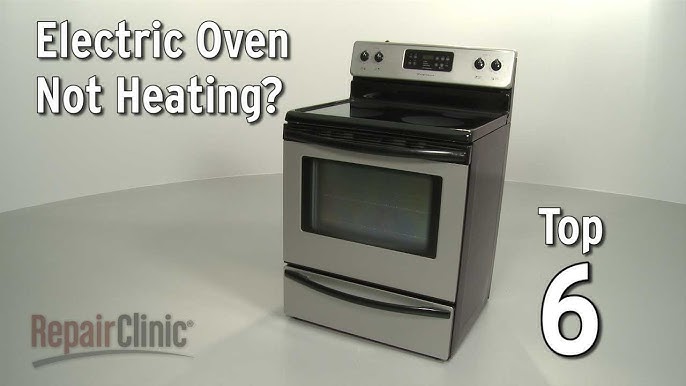
Credit: www.youtube.com
Frequently Asked Questions
Why Is My Ge Oven Not Heating At All?
Your GE oven might not heat due to a faulty heating element. Check wiring connections and replace if needed.
How Can I Fix My Electric Oven’s Temperature Issue?
First, inspect the thermostat. Replace if damaged or miscalibrated. Ensure all connections are secure and functional.
Could A Broken Igniter Cause Heating Problems?
Yes, a broken igniter prevents the oven from heating. Test and replace the igniter to restore heating.
Conclusion
Troubleshooting your electric GE oven doesn’t need to be complex. Start with simple checks like power connection and settings. Explore common issues like faulty heating elements or broken thermostats. Regular maintenance helps prevent problems. If problems persist, consider professional help.
A well-functioning oven ensures reliable cooking. Keep these tips handy for future issues. Understanding your oven’s components can save time and money. Stay informed and proactive about appliance care. Efficient ovens make cooking enjoyable. Prioritize safety and efficiency. Your oven can work well with simple care and attention.
Related Article
- Why is My Samsung Oven Not Heating Up? Troubleshooting Tips
- Why Doesn’T My Oven Heat Up? Troubleshoot Now!
- Wood Stove Oven Combo: Revolutionize Your Cooking Experience

Hi there, my name is Kitty Wilson and I am the founder of Globokitchen.com. Professionally, I am a chef and start my cooking journey since 2009. Stay tuned to get splendid cooking tips, ideas, and hacks

